I was lucky to be born in the 70s. The last thirty odd years, (especially in India) have been a transitional phase. An incredibly rapid evolution, driven by avarice, compulsion, globalisation, and changing societal values!
I have seen it all, Y2K babies will not be as fortunatethey will live in the pseudo realism of the 21st century: From a black and white television that aired a single government owned channelto a 99 channel coloured television, which airs programmes even from our suspiciously friendly neighbour Pakistan. From fully clad heroes and heroines of the late 70s to the bare-it-all stars of today. From snail mail to E-mail, rotary phones to mobiles, the grubby Udupi hotel that was once the pride of every neighbourhood to lounge bars and discothèques. From the little affordable cinema houses, where you shared a seat with bed bugs, and strained your ears to hear the dialogue over the din of dangerously gyrating fans, to the unreasonably expensive multiplexes, and from the close camaraderie that every Bombayite shared to this selfishness which guides urban existence today.
The locality where I reside was just a village then, there were hardly any cars on the once tranquil streets, and the Ambassador, Fiat, and Morris Minor vied for attention. In summer, bright yellow flowers of the Copper Shield tree made the streets shimmer, as if they were paved with gold, and in the monsoons, all the drains and puddles would be the venue for paper boat regattas, winters are non-existent in Bombay. The adventurous youth rode a Rajdooth Motorcycle, and cycles were still in vogue. The link-road behind my house, where I can barely walk today (without the fear of being run over) was where my friends and I learnt to ride a cycle, and during the kite festival of 'Sankranti' hundreds of children would converge on that dirt track and flaunt their homemade kites, and the sky would be blanketed with coloured paper diamonds. Despite the convenience that change has offered us, I secretly yearn for the simplicity of rural living. This is why the little potters' village tucked in a corner of Dharavi remains my favourite subject. This transitional phase, which I refer to also saw a major change in the way art was beginning to be perceived, the reformist art of Ara, Souza Paul, and Hussain would gain acceptance, although I was oblivious to art then, I unconsciously grew up with it, my conscious obsession with art began much later. This transition would form the basis of a personal style that would be based on the paradoxes, which this magnificent country offers.
A journey through India has to be unplannedPlanning spoils everythingit is against everything Indian I guess. There is a certain kind of order in its chaos. A certain sanity that is born out of the insane and inane.
River Yatra was not a travel photography assignment, but a personal questand the ambiguity of this journey in itself provided the structure. This was not envisaged as a traveller's handbook, but a photographer's diary. My love affair with images spans a decade. Photography has become a religion for mea way of life. It has also taught me the art of inconspicuousness; this ability to go unnoticed is necessary for candid portraiture. No, I do not claim to be an archimage with a cloak of invisibility nor a Manitou from the X-files. As an amateuryou act. As a professionalyou react; and very often, you do so unconsciously. This invisibility is the art of pointing your camera at someone from five feet away, and being able to capture that person's most intimate expression unpretentiously. Proximity to my subjects is essential, for otherwise I can never capture their quintessence. Photography has been a very gratifying experience for me; to claim that it has made me a better human being might be an exaggeration, but yes, it has certainly made me more sensitive to my surroundings and I hope compassion is contagious.
All the images on my site www.riveryatra.com are shot on 35mm. (Nikon film cameras, Digital Cameras, and Leica rangefinders) I personally prefer rangefinders; they are less intimidating. As usual, I have relied on my instincts and a handheld exposure meter, rather than on TTL metering.
Tripods are necessary; I carry two tripods on assignment, a Manfrotto 058 with a 229-3D pro head for very long exposures, which I use for planned shots, and a lighter Slik 300 DX or the Gitzo Mountaineer (the Gitzo can also be used as a Monopod, as one of its legs is detachable). I avoid flashguns like the plague, and hate to alter ambient light ratios, however I do carry two Nikon 80 DX flashguns for controlled lighting along with Nikon's very handy wireless slave flash controller unit SU-4. The combination gives you remarkable control over your lighting, and the thoughtful addition of a modelling lamp by Nikon's designers (the strobe flickers for 10 to 15 seconds) gives the photographer the ability to prejudge shadows. I also carry a six cell Maglite, and use it as a Hosemaster for painting with light; this really comes in handy, especially in archaeological sites where flashguns are prohibited.
SEE MY IMAGES AT http://[URL="http://www.riveryatra.com"]www.riveryatra.com[/URL]
and http://www.riveryatra.com/portfolio/default.htm
Happy Shooting, Keep the faith
Sunil
I have seen it all, Y2K babies will not be as fortunatethey will live in the pseudo realism of the 21st century: From a black and white television that aired a single government owned channelto a 99 channel coloured television, which airs programmes even from our suspiciously friendly neighbour Pakistan. From fully clad heroes and heroines of the late 70s to the bare-it-all stars of today. From snail mail to E-mail, rotary phones to mobiles, the grubby Udupi hotel that was once the pride of every neighbourhood to lounge bars and discothèques. From the little affordable cinema houses, where you shared a seat with bed bugs, and strained your ears to hear the dialogue over the din of dangerously gyrating fans, to the unreasonably expensive multiplexes, and from the close camaraderie that every Bombayite shared to this selfishness which guides urban existence today.
The locality where I reside was just a village then, there were hardly any cars on the once tranquil streets, and the Ambassador, Fiat, and Morris Minor vied for attention. In summer, bright yellow flowers of the Copper Shield tree made the streets shimmer, as if they were paved with gold, and in the monsoons, all the drains and puddles would be the venue for paper boat regattas, winters are non-existent in Bombay. The adventurous youth rode a Rajdooth Motorcycle, and cycles were still in vogue. The link-road behind my house, where I can barely walk today (without the fear of being run over) was where my friends and I learnt to ride a cycle, and during the kite festival of 'Sankranti' hundreds of children would converge on that dirt track and flaunt their homemade kites, and the sky would be blanketed with coloured paper diamonds. Despite the convenience that change has offered us, I secretly yearn for the simplicity of rural living. This is why the little potters' village tucked in a corner of Dharavi remains my favourite subject. This transitional phase, which I refer to also saw a major change in the way art was beginning to be perceived, the reformist art of Ara, Souza Paul, and Hussain would gain acceptance, although I was oblivious to art then, I unconsciously grew up with it, my conscious obsession with art began much later. This transition would form the basis of a personal style that would be based on the paradoxes, which this magnificent country offers.
A journey through India has to be unplannedPlanning spoils everythingit is against everything Indian I guess. There is a certain kind of order in its chaos. A certain sanity that is born out of the insane and inane.
River Yatra was not a travel photography assignment, but a personal questand the ambiguity of this journey in itself provided the structure. This was not envisaged as a traveller's handbook, but a photographer's diary. My love affair with images spans a decade. Photography has become a religion for mea way of life. It has also taught me the art of inconspicuousness; this ability to go unnoticed is necessary for candid portraiture. No, I do not claim to be an archimage with a cloak of invisibility nor a Manitou from the X-files. As an amateuryou act. As a professionalyou react; and very often, you do so unconsciously. This invisibility is the art of pointing your camera at someone from five feet away, and being able to capture that person's most intimate expression unpretentiously. Proximity to my subjects is essential, for otherwise I can never capture their quintessence. Photography has been a very gratifying experience for me; to claim that it has made me a better human being might be an exaggeration, but yes, it has certainly made me more sensitive to my surroundings and I hope compassion is contagious.
All the images on my site www.riveryatra.com are shot on 35mm. (Nikon film cameras, Digital Cameras, and Leica rangefinders) I personally prefer rangefinders; they are less intimidating. As usual, I have relied on my instincts and a handheld exposure meter, rather than on TTL metering.
Tripods are necessary; I carry two tripods on assignment, a Manfrotto 058 with a 229-3D pro head for very long exposures, which I use for planned shots, and a lighter Slik 300 DX or the Gitzo Mountaineer (the Gitzo can also be used as a Monopod, as one of its legs is detachable). I avoid flashguns like the plague, and hate to alter ambient light ratios, however I do carry two Nikon 80 DX flashguns for controlled lighting along with Nikon's very handy wireless slave flash controller unit SU-4. The combination gives you remarkable control over your lighting, and the thoughtful addition of a modelling lamp by Nikon's designers (the strobe flickers for 10 to 15 seconds) gives the photographer the ability to prejudge shadows. I also carry a six cell Maglite, and use it as a Hosemaster for painting with light; this really comes in handy, especially in archaeological sites where flashguns are prohibited.
SEE MY IMAGES AT http://[URL="http://www.riveryatra.com"]www.riveryatra.com[/URL]
and http://www.riveryatra.com/portfolio/default.htm
Happy Shooting, Keep the faith
Sunil


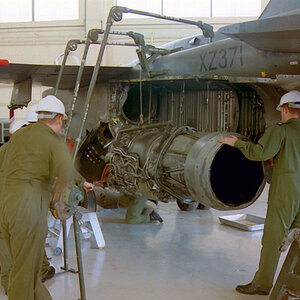
![[No title]](/data/xfmg/thumbnail/42/42328-c1143adda9734f7d05ce4361e79c27a7.jpg?1619740129)
![[No title]](/data/xfmg/thumbnail/42/42326-1e75ade9716f7e863d85def8d13cf591.jpg?1619740127)
![[No title]](/data/xfmg/thumbnail/37/37603-739c5d9b541a083a12f2f30e45ca2b7b.jpg?1619738147)
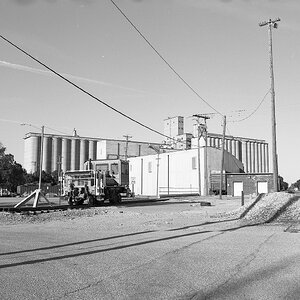
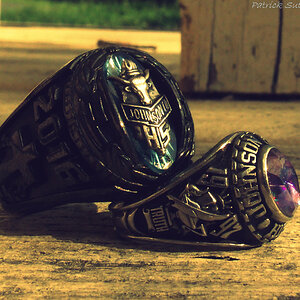
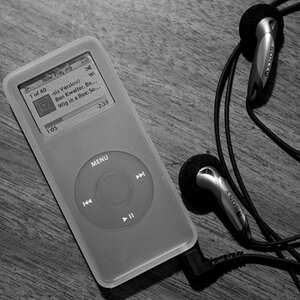
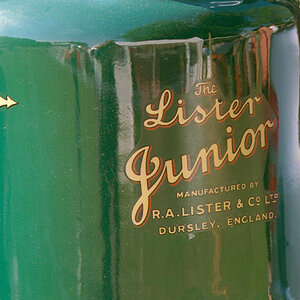
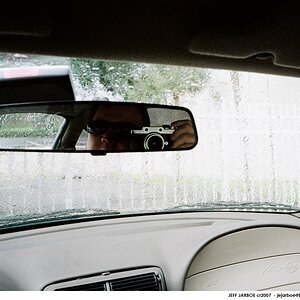
![[No title]](/data/xfmg/thumbnail/40/40287-4f839095000f74d779b90ed75df9dc62.jpg?1619739408)
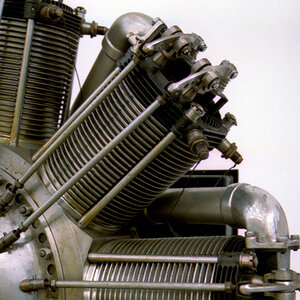
![[No title]](/data/xfmg/thumbnail/42/42397-30faa170de7ed9be38adf00b9b26a220.jpg?1619740167)